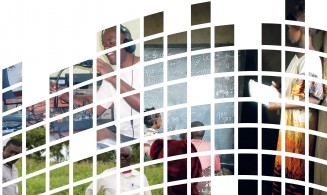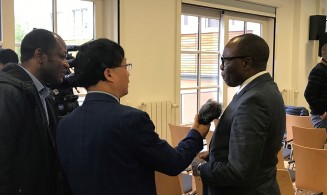

Fresh momentum for adult learning and education in Europe
adult-learning-and-education-meeting.jpg

Adult learning and education (ALE) has a crucial role to play in helping Europe tackle diverse challenges, such as integrating migrants and responding to population ageing. On 13 October 2016, Mr Arne Carlsen, Director of the UNESCO Institute for Lifelong Learning (UIL), visited Brussels to present UIL’s latest analysis, data, case examples and policy recommendations on the state of ALE in Europe.
Mr Carlsen’s presentation was part of a series of launch events for UIL’s third Global Report on Adult Learning and Education (GRALE III). The Report draws on a monitoring survey of 139 countries, including 33 from Europe.
UIL partnered on this event with the Electronic Platform for Adult Learning in Europe (EPALE), a multilingual open-membership community for ALE professionals across Europe. The presentation took place as part of the annual meeting of EPALE’s National Support Services, which brought together 60 leading experts responsible for promoting ALE across EU member states.
GRALE III: key messages on European progress in ALE
GRALE III finds that progress in ALE in Europe has been mixed since countries pledged to improve their ALE policies and practices in the 2009 Belém Framework for Action. The Report’s key findings on Europe include the following:
- 74% of the responding European countries said they have improved ALE policies since 2009.
- 27% said that they have an interdepartmental body to promote ALE for health.
- 39% said they spend more than 4% of their public education budgets on ALE. However, 21% said that they do not know what proportion of their budgets goes to ALE. Meanwhile, 48% said they plan to increase spending on ALE.
- Only 9% of EU countries track ALE’s social outcomes (such as health outcomes), which is far below the global average. European countries seem to prioritize ALE’s impact on employment and the labour market.
The Recommendation on Adult Learning and Education (2015)
Mr Carlsen presented the major features of the Recommendation on Adult Learning and Education (2015). This recommendation is a far-reaching tool designed to help governments and diverse other stakeholders promote and improve ALE policies and practices.
Mr Carlsen also shared his suggestions on how European countries can work towards the global ALE policy agenda, particularly the 2030 Agenda for Sustainable Development. In this context, he highlighted compelling evidence provided by GRALE III on the impact of ALE in three major policy domains: health and well-being; employment and the labour market; and social, civic and community life.









